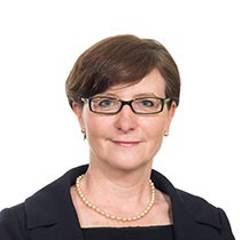18/10/2012
Child abuse concerns raise challenging dilemmas for all health and social care professionals.
The General Medical Council has developed some updated guidance following concerns that high profile cases and a fear of complaints by parents were deterring doctors from raising child protection concerns.
Although it is the role of the local authority children’s services and the courts to make the final decision about how best to protect a child, it is essential that doctors act if they believe that a child is being neglected or abused. Doctors will be justified in sharing information if they:
- act on honestly held and reasonable fears about a child's welfare
- share relevant information and
- take action through appropriate channels.
The GMC guidance “Protecting children and young people: the responsibilities of all doctors” which came into effect on 3 September 2012 provides an advice framework for doctors on:
- dealing with complex child protection issues
- confidentiality and information sharing
- child protection examinations
- acting as a witness in court.
Dealing with complex child protection issues
Identifying children at risk of abuse or neglect
- Be aware of risk factors such as parents with substance misuse or mental health issues, homes where domestic violence is taking place or where children are living in poverty.
- Consider whether your adult patients pose a risk to children.
- Maintain objectivity and work with families where possible – consider whether families need extra support.
Communication and support
- Listen to and consider the views of young people.
- Use appropriate language and communication methods.
- Tell the child and the parents if you have concerns and what steps you propose to take unless it will put a child at risk. Consider whether a parent should be present when speaking to a child or whether another health professional should support the child.
Working in partnership
- Understand the roles of other agencies responsible for protecting children.
- Contribute promptly to child protection procedures.
- If unsure, consult with colleagues and other appropriate agencies and identify the named/designated professional within your organisation. Risk sometimes becomes apparent when a number of people share minor concerns.
Confidentiality and sharing information
- If you have concerns about a child tell an appropriate agency. You do not need to be certain that a child is at risk of significant harm to take this step.
- Consent to share information should be obtained if possible. There is no need to obtain consent if it is justified in the public interest or required by law.
- Tell the patient what information has been shared unless this would put anyone else at increased risk.
- Make a clear, accurate and legible record of a decision to share /delay sharing information, the reasons for any decision, advice received, and steps taken in patient’s medical notes.
- Any records should be contemporaneous or made as soon as possible.
- Ensure that relevant information is available to other healthcare professionals treating the child.
Child protection examinations
- Is the child protection examination necessary and appropriate?
- Obtain consent or legal authorisation to carry out a child protection examination.
- Explain the purpose of the examination to the child and respect a child’s decision to refuse an examination.
- Avoid repeated examinations of a child.
- If you believe a child is at immediate risk contact police and local authority children’s services.
Doctors giving evidence in court
- Your primary overriding duty is to the court.
- Your evidence should be clear, impartial, honest and accurate.
- If you are a witness of fact your evidence should be based on clinical records and notes made at the time.
- If you are an expert witness you must only give evidence about issues that are within your professional competence.
How Bevan Brittan can help
We understand that child abuse concerns are complex and difficult. It is often not straightforward to assess whether or not to disclose information when putting the needs of a child first.
Our experienced team of specialists can provide advice in relation to specific child abuse/neglect concerns.
We can also provide training on:
- Best practice and specialist codes of practice that impact on the role of the healthcare professional.
- Effective communication.
- How to write reports that follow procedures set out by courts.
- How to give oral evidence in court.
Please contact a member of our team if you require advice or are interested in the training we can provide.
Useful links and documents
 Protecting
children and young people: the responsibilities of all doctors.
– Issued by the General Medical Council.
Protecting
children and young people: the responsibilities of all doctors.
– Issued by the General Medical Council.
 The Munro
review of child protection: final report: a child centred
system – by Professor Eileen Munro, May 2011
The Munro
review of child protection: final report: a child centred
system – by Professor Eileen Munro, May 2011
 When to
suspect child maltreatment – National Institute for Health and
Clinical Excellence 2009
When to
suspect child maltreatment – National Institute for Health and
Clinical Excellence 2009



